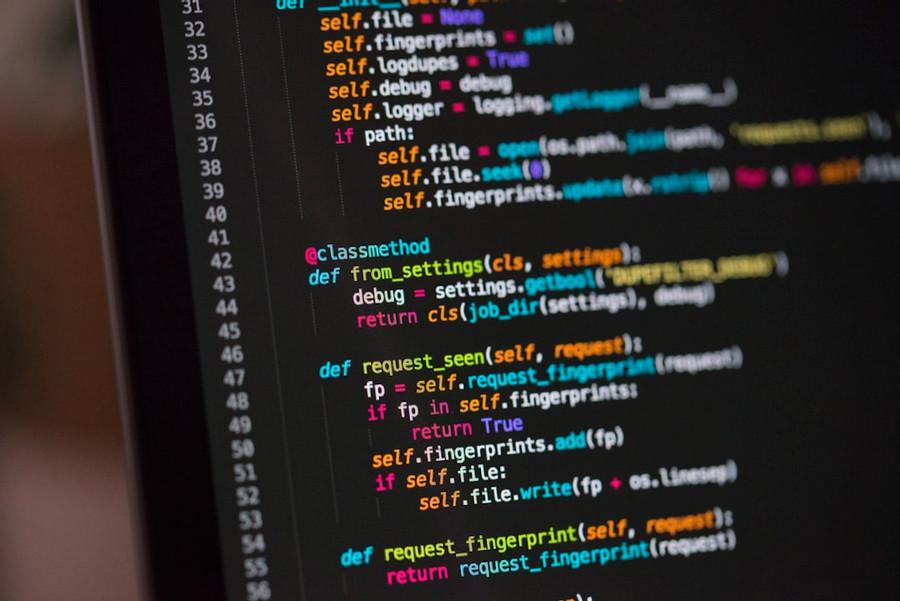Mastering the Art of Ethical Hacking: Unveiling the World of Cybersecurity 🔐
Ideas, facts & insights covering these topics:
24 ideas
·2.84K reads
6
1
Explore the World's Best Ideas
Join today and uncover 100+ curated journeys from 50+ topics. Unlock access to our mobile app with extensive features.
1. Understanding the World of Hacking | How to Be a Hacker
1.1 The Evolution of Hacking
Hacking has come a long way from its early days of curiosity-driven exploration to its current reputation as a serious security threat. Understanding the history and evolution of hacking can provide valuable insights into its motivations and methods.
21
285 reads
1.2 Types of Hackers
Not all hackers are created equal. From the notorious black-hat hackers who wreak havoc on computer systems to the ethical white-hat hackers who help improve security, there is a spectrum of hacker types. Discovering where you fit in can help shape your journey.
20
206 reads
1.3 Hacking Ethics and Legalities
While hacking may seem like a wild and rebellious world, there are ethical considerations and legal boundaries that every aspiring hacker should be aware of. Knowing the line between right and wrong will ensure you navigate the hacking landscape responsibly.
20
188 reads
2. Developing a Hacker Mindset
2.1 Curiosity and Problem-Solving
At the core of hacking is an insatiable curiosity and an innate desire to solve problems. Cultivating a hacker mindset means embracing your curiosity and honing your problem-solving skills to tackle complex challenges head-on.
21
184 reads
2.2 Persistence and Dedication
Hacking is not a skill that is acquired overnight. It requires dedication, perseverance, and a never-give-up attitude. Embrace the setbacks as learning opportunities, and keep pushing forward to reach your hacking goals.
21
158 reads
2.3 Critical Thinking and Analytical Skills
Critical thinking and analytical skills are essential for any hacker. Being able to dissect problems, analyze information, and think outside the box will help you uncover vulnerabilities and find creative solutions to exploit them.
21
148 reads
3. Mastering Programming Languages and Tools
3.1 Essential Programming Languages for Hackers
Programming languages are the building blocks of hacking. From Python to C++, mastering the right languages will allow you to effectively manipulate systems, automate tasks, and create powerful hacking tools.
21
146 reads
3.2 Familiarity with Command-Line Interfaces
Command-line interfaces (CLIs) are the hacker's playground. Understanding how to navigate and utilize CLIs gives you direct access to the inner workings of a system, enabling you to execute commands and carry out sophisticated hacks.
20
131 reads
3.3 Using Debugging and Reverse Engineering Tools
Debugging and reverse engineering tools are essential for understanding how software and systems operate. These tools allow you to analyze and manipulate code, identify vulnerabilities, and unlock hidden functionalities.
20
127 reads
4. Exploring Network Security and Penetration Testing
4.1 Understanding Network Protocols
To master network security, you need to understand the protocols that govern data transmission. From TCP/IP to HTTP, comprehending how information flows through networks will help you identify weaknesses and exploit them.
21
122 reads
4.2 Conducting Network Scanning and Enumeration
Network scanning and enumeration involve systematically probing a network for vulnerabilities. By identifying open ports, services, and potential entry points, you can uncover weaknesses that can be exploited to gain unauthorized access.
20
110 reads
4.3 Exploiting Vulnerabilities and Gaining Access
Penetration testing is the art of exploiting vulnerabilities to demonstrate their potential impact. By employing ethical hacking techniques, you can help organizations identify and address security weaknesses, ultimately making systems more robust.
Remember, hacking is a double-edged sword with ethical implications. It's important to approach hacking responsibly, using your skills for good and never engaging in illegal activities.
20
102 reads
5. Unveiling Web Application Vulnerabilities
5.1 Identifying Common Web Application Attack Vectors
Web applications are the bread and butter of the internet, but they can also be a hacker's playground. In this section, we'll uncover the common vulnerabilities that hackers love to exploit. From input validation issues to insecure direct object references, we'll show you the weak spots you need to keep an eye on.
20
94 reads
5.2 Cross-Site Scripting (XSS) Attacks
Forget the Marvel superheroes, XSS attacks are the real villains lurking in the web. These sneaky attacks allow hackers to inject malicious scripts into trusted websites, which can then be executed on unsuspecting users' browsers. We'll delve into the various types of XSS attacks and offer tips on how to defend against them.
22
96 reads
5.3 SQL Injection Attacks
Ah, SQL injections – the grandmasters of hacking techniques. With a well-crafted SQL query, hackers can manipulate databases and gain access to confidential information. But fear not, we'll teach you how to identify and prevent SQL injection attacks, so you can keep your data safe from prying eyes.
21
85 reads
6. Expanding Knowledge on System Exploitation Techniques
6.1 Understanding Operating System Architecture
Operating systems are like the foundation of a building – they hold everything together. To truly understand system exploitation, you need a solid grasp of operating system architecture. We'll give you a crash course on the inner workings of popular operating systems, so you can understand how to exploit their vulnerabilities.
20
82 reads
6.2 Privilege Escalation Techniques
Want to take your hacking skills to the next level? Privilege escalation is the way to go. In this section, we'll show you how to elevate your access rights on a system, gaining control over admin privileges. But remember, with great power comes great responsibility. Use these techniques ethically and legally!
20
75 reads
6.3 Post-Exploitation and Maintaining Access
So you've hacked into a system – now what? In this section, we'll guide you through the crucial steps of post-exploitation, where you learn to maintain access and pivot through networks. We'll cover topics like setting up backdoors, creating persistence, and remaining undetected. Just remember to use these skills for good, not evil.
20
77 reads
7. Implementing Social Engineering Tactics
7.1 Psychological Manipulation Techniques
Sometimes, the strongest security measures can be undermined by the weakest link – humans. Social engineering is the art of exploiting human psychology to gain unauthorized access. We'll explore the world of psychological manipulation and provide insight into the tactics hackers use to deceive and manipulate their targets.
20
78 reads
7.2 Phishing and Spear Phishing Attacks
Phishing, the age-old technique of baiting victims with enticing emails or messages, has evolved into a highly effective tool for hackers. Spear phishing takes it one step further, targeting specific individuals with tailored messages. We'll give you the lowdown on these deceptive techniques and how you can protect yourself and your organization.
20
71 reads
8. Ethical Hacking and Legal Considerations
8.1 The Role of Ethical Hackers
Not all hackers wear black hats and wreak havoc. Ethical hackers, also known as white-hat hackers, use their skills to identify vulnerabilities and report them to help organizations improve their security. We'll dive into the world of ethical hacking and explore the principles that guide these cybersecurity superheroes
20
71 reads
FAQ
Is hacking illegal?
Hacking can be illegal, depending on the intent and actions of the hacker. Black hat hacking, which involves unauthorized access and malicious activities, is illegal. However, ethical hacking, where individuals use their skills to identify and fix vulnerabilities with proper authorization, is legal and plays a critical role in enhancing cybersecurity.
20
68 reads
Can anyone become a hacker?
With dedication, a passion for learning, and the right mindset, anyone can become a hacker. However, it is important to note that ethical hacking requires responsibility and adherence to legal and ethical guidelines. It is crucial to use hacking skills for positive purposes, such as identifying and mitigating security vulnerabilities, rather than engaging in malicious activities.
20
70 reads
What are the ethical considerations in hacking?
Ethical considerations in hacking involve obtaining proper authorization before testing or assessing the security of systems, respecting privacy and confidentiality, and ensuring that the actions taken do not cause harm or disruption. Ethical hackers must always prioritize the safety and security of individuals and organizations and comply with legal requirements and industry standards.
20
71 reads
IDEAS CURATED BY
CURATOR'S NOTE
It might help everyone. made with the help of AI.
“
Similar ideas
Read & Learn
20x Faster
without
deepstash
with
deepstash
with
deepstash
Personalized microlearning
—
100+ Learning Journeys
—
Access to 200,000+ ideas
—
Access to the mobile app
—
Unlimited idea saving
—
—
Unlimited history
—
—
Unlimited listening to ideas
—
—
Downloading & offline access
—
—
Supercharge your mind with one idea per day
Enter your email and spend 1 minute every day to learn something new.
I agree to receive email updates











